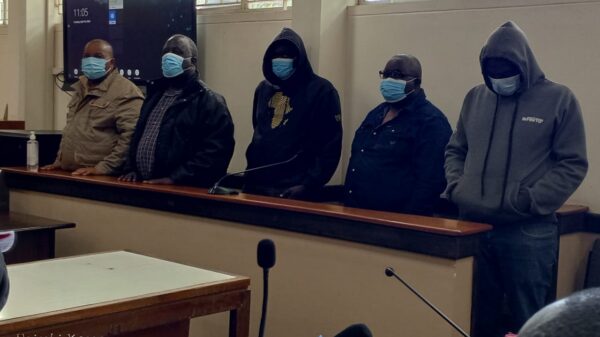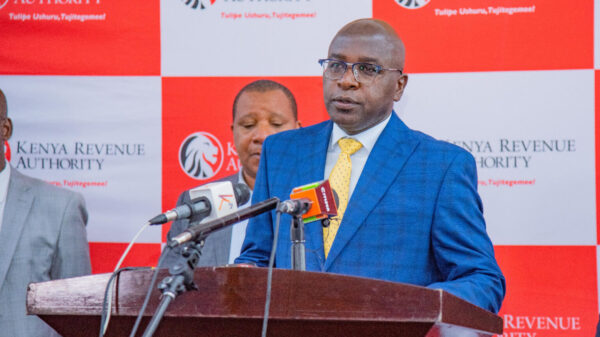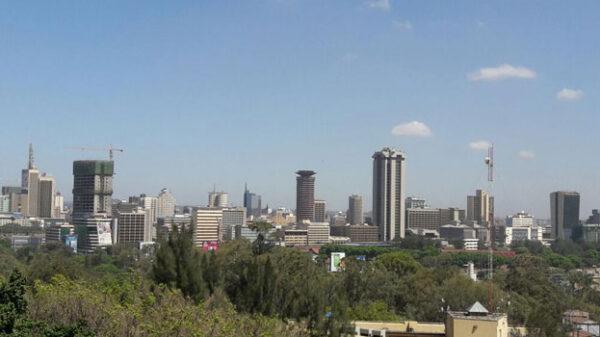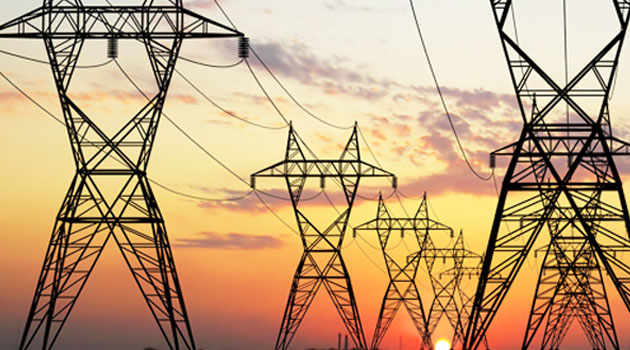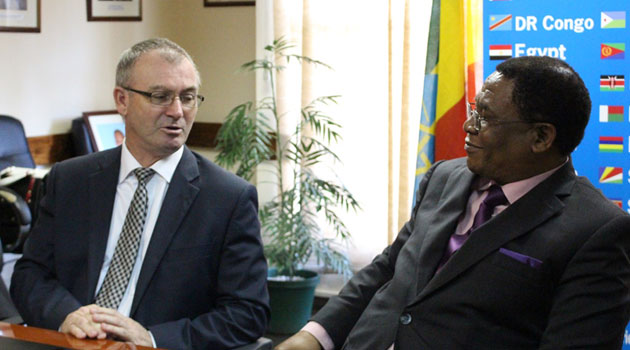
Deputy Premier of Western Australia Dr Kim Hames, who visited COMESA Secretariat in Lusaka, Secretary General Sindiso Ngwenya said the partnership signed with Western Australia in January 2014 was fundamental to the COMESA region/FILE
These are taxation and financial frameworks, mineral beneficiation and linkages, human and institutional capacity development and a harmonized mineral sector policy framework.
In a meeting with Deputy Premier of Western Australia Dr Kim Hames, who visited COMESA Secretariat in Lusaka, Secretary General Sindiso Ngwenya said the partnership signed with Western Australia in January 2014 was fundamental to the COMESA region. This is because of W. Australia’s experience in using minerals and other resources as a springboard for industrialization and infrastructure development.
“COMESA region is a major producer of copper, cobalt, chrome, platinum group metals, gold and the recent discoveries of petroleum and natural gas and hold great promise for the future of the region,” Ngwenya said.
“We strongly believe that the vast mineral and petroleum resources in the region hold the key for our regional structural transformation.”
During the talks that centered on the implementation of the Memorandum of Understanding signed between WA and COMESA in January 2014 by the Premier Colin Barnett and the Secretary General (on behalf of Member States), Dr Hames said Western Australia was committed to sharing with the COMESA States her expertise in the areas identified in the agreement and well as in tourism and health.
“We are ready to provide our government officers to work with counterparts in COMESA States to strengthen collaboration and share best practices in the mining industry, agriculture and environment,” Dr Hames said.
The MOUwhich is in the second year of implementation seeks to develop and reinforce cooperation in the fields of mineral and petroleum resources, agriculture and agribusiness, vocational training and capacity building.
The Secretary General contended that the regional economies fail to benefit fully from linkages which emanate from a well-integrated mineral sector and the multitudes of economic multipliers along the mineral value chain due to the limited processing of mineral domestically.
“The lack of linkages between minerals exploitation and the regional economies, the enclave nature of the sector, is the reason mining has a weak developmental footprint in COMESA,” Ngwenya said.
As a way forward, COMESA has begun a value chain analysis to profile opportunities for deepening the developmental role of the sector through mineral clusters and growth poles. He noted that the experience of Western Australia in facilitating infrastructure development would be instructive in this effort.
On the region’s human and institutional capacity limitations, Mr Ngwenya observed that this has led to high levels of illicit financial flows from the sector through transfer pricing and other such vices and the failure to deploy revenues towards meaningful development projects.
“An estimated $50 billion is lost to the continent due to illicit financial flows and most of it from the resources sector,” he said. “Institutions mandated to supervise operations in the sector face serious capacity challenges.
He attributed this to poorly negotiated contracts as well as the limited capacity of governments to audit the mineral value chain to plug leakages have also contributed to the poor performance of the sector. Further, he said the creation of a predictable, harmonized policy and legal framework within the region will an important part of the overall regional integration initiatives.















